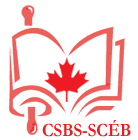 I imagine that many if not all U2 fans have heard about an academic conference devoted to the music and message of the best rock band in the world, i.e., U2. The conference, “U2: The Hype and the Feedback,” is being held in NYC on 13-15 May 2009. I would absolutely LOVE to attend the conference and was actually invited by a friend to be on a panel discussion entitled, “U2, Faith and Justice: Theological Education and Spiritual Formation.” But, alas, it is unlikely that I will be able to attend due primarily to financial reasons (please send money!).
I imagine that many if not all U2 fans have heard about an academic conference devoted to the music and message of the best rock band in the world, i.e., U2. The conference, “U2: The Hype and the Feedback,” is being held in NYC on 13-15 May 2009. I would absolutely LOVE to attend the conference and was actually invited by a friend to be on a panel discussion entitled, “U2, Faith and Justice: Theological Education and Spiritual Formation.” But, alas, it is unlikely that I will be able to attend due primarily to financial reasons (please send money!).
That being said, the conference looks like it will be fantastic. The blurb from the Conference website describes the event as follows:
Achtung! Scholars, teachers, students, journalists, clergy, musicians and intellectually curious U2 fans: for more than 30 years, U2 has asked us to look at the world, wrestle with ourselves and then dream out loud. From “I Will Follow” and “Running to Stand Still,” to “The Wanderer,” “Walk On,” and “One Step Closer,” U2 has charted the human heart and the ways of the world, calling out some of their more dynamic points of intersection. While doing so, they have created what Bruce Springsteen described as “some of the most beautiful sonic architecture in rock and roll.”
A band of paradoxes, ironies, ambition and sincerity, their influence in the worlds of music, entertainment, popular culture, humanitarian relief and the global politics of peace and social justice should be the stuff of spirited conversation. Hype? Feedback? Or the real thing? Come join the conversation as we see what U2 has done.
My opinion: U2 is the real thing (sorry Coca-Cola). I have been a big fan of U2 virtually since their inception. And I have also read much of the popular and scholarly literature about U2, have lectured on U2 in my religion and popular culture course (as well as used their songs as modern-day examples of lament in my Psalms and Hebrew Bible courses), and have managed to incorporate them in a number of my sermons. And, in case you are wondering, I also just sit back and listen to them!
While I may not be able to attend, you can! Registration is now open. To register, just go the the the Conference website.

 The Ancient Historiography Seminar / Groupe de Travail sur l’Historiographie Ancienne of the Canadian Society of Biblical Studies invites papers on self-identification, community identity, and ethnicity in Judahite/Yehudite historiography for the 2007 Annual Meeting at the University of Saskatchewan, Saskatoon (May 27-29).
The Ancient Historiography Seminar / Groupe de Travail sur l’Historiographie Ancienne of the Canadian Society of Biblical Studies invites papers on self-identification, community identity, and ethnicity in Judahite/Yehudite historiography for the 2007 Annual Meeting at the University of Saskatchewan, Saskatoon (May 27-29).